L'équipe Conduit a publié un spotlight dans Journal of Cell Biology :
Building the centrosome: PLK-1 controls multimerization of SPD-5
Introduction :
Centrosome maturation relies on the assembly of an underlying molecular scaffold. In this issue of JCB, Rios et al. (https://doi.org/10.1083/jcb.202306142) use cross-linking mass spectrometry to reveal how PLK-1 phosphorylation promotes intermolecular SPD-5 self-association that is…
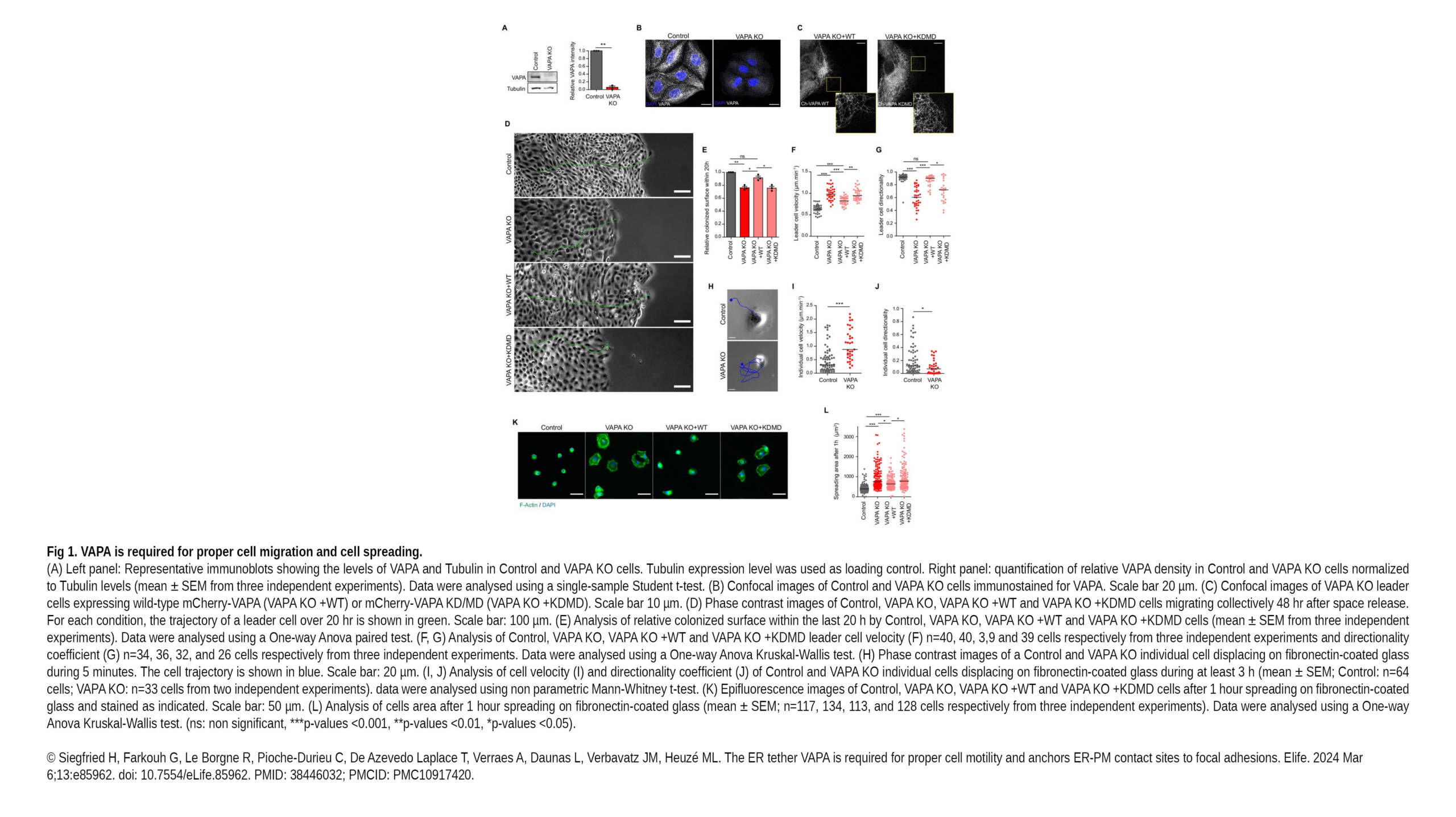
L'équipe Jackson/Verbavatz a publié un nouvel article dans eLife :
The ER tether VAPA is required for proper cell motility and anchors ER-PM contact sites to focal adhesions
Résumé :
Cell motility processes highly depend on the membrane distribution of Phosphoinositides, giving rise to cytoskeleton reshaping and membrane trafficking events. Membrane contact sites serve as platforms for…
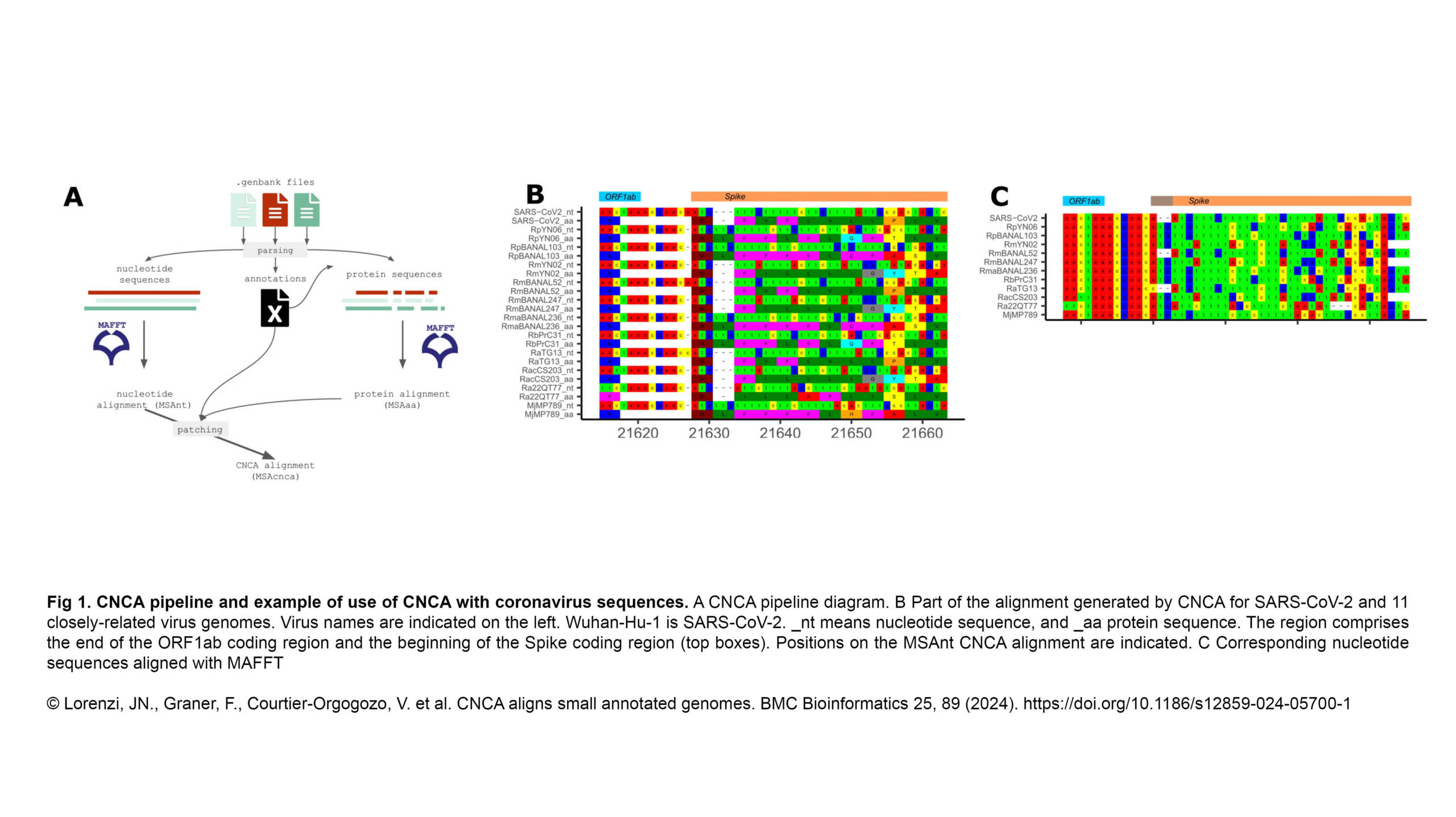
L'équipe Courtier a contribué à la publication d'un nouvel article dans BMC Bioinformatics :
CNCA aligns small annotated genomes
Résumé :
Background
To explore the evolutionary history of sequences, a sequence alignment is a first and necessary step, and its quality is crucial. In the context of the study of the proximal origins of SARS-CoV-2 coronavirus,…
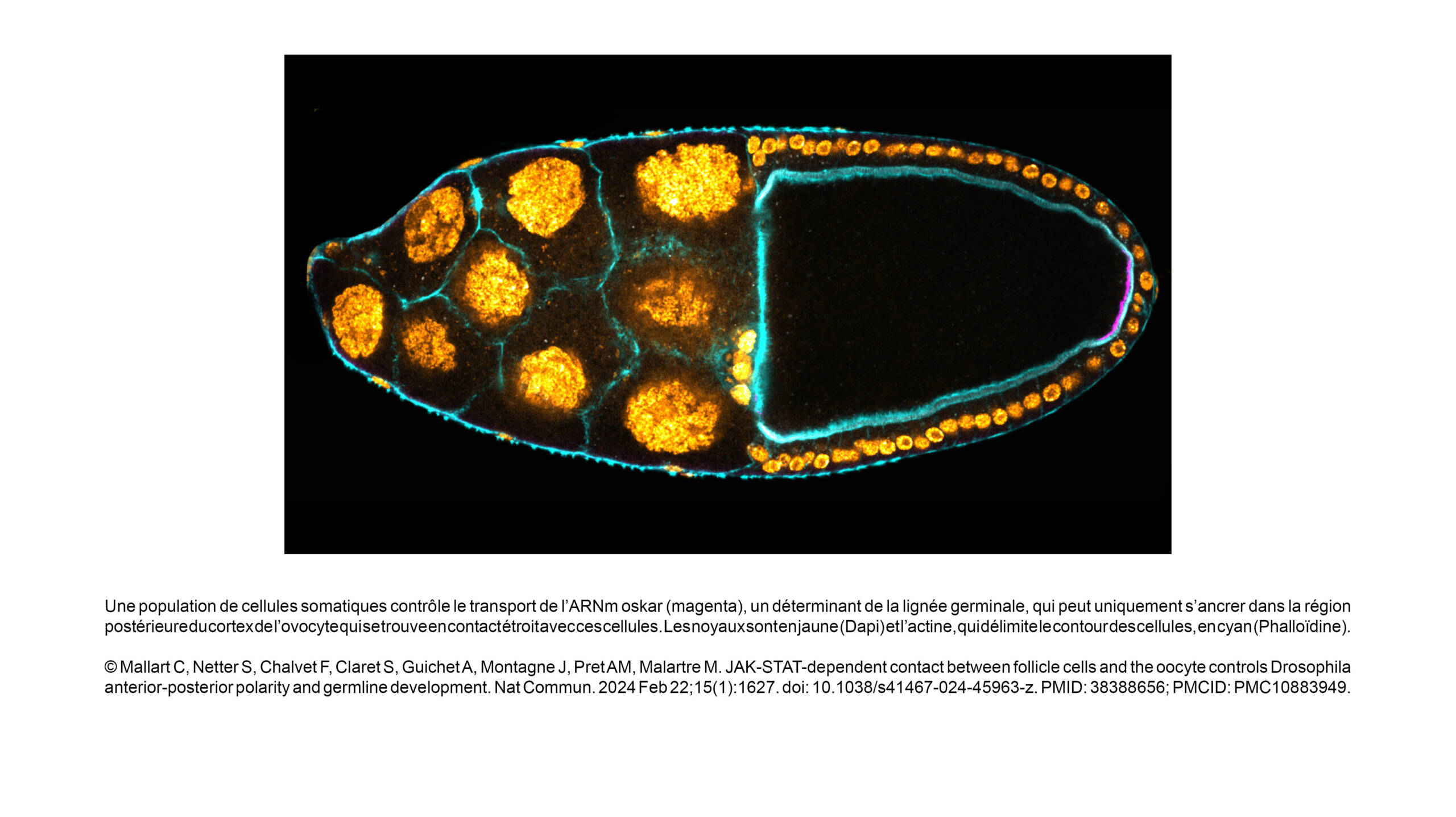
Un nouvel article a été publié dans Nature Communications :
JAK-STAT-dependent contact between follicle cells and the oocyte controls Drosophila anterior-posterior polarity and germline development
Cette étude est le fruit d'une collaboration entre des scientifiques l’Institut de biologie intégrative de la cellule (université Paris-Saclay) et de l'Institut Jacques Monod (Konstantinides Lab, Minc Lab, Guichet Lab).
Résumé :
The number of…
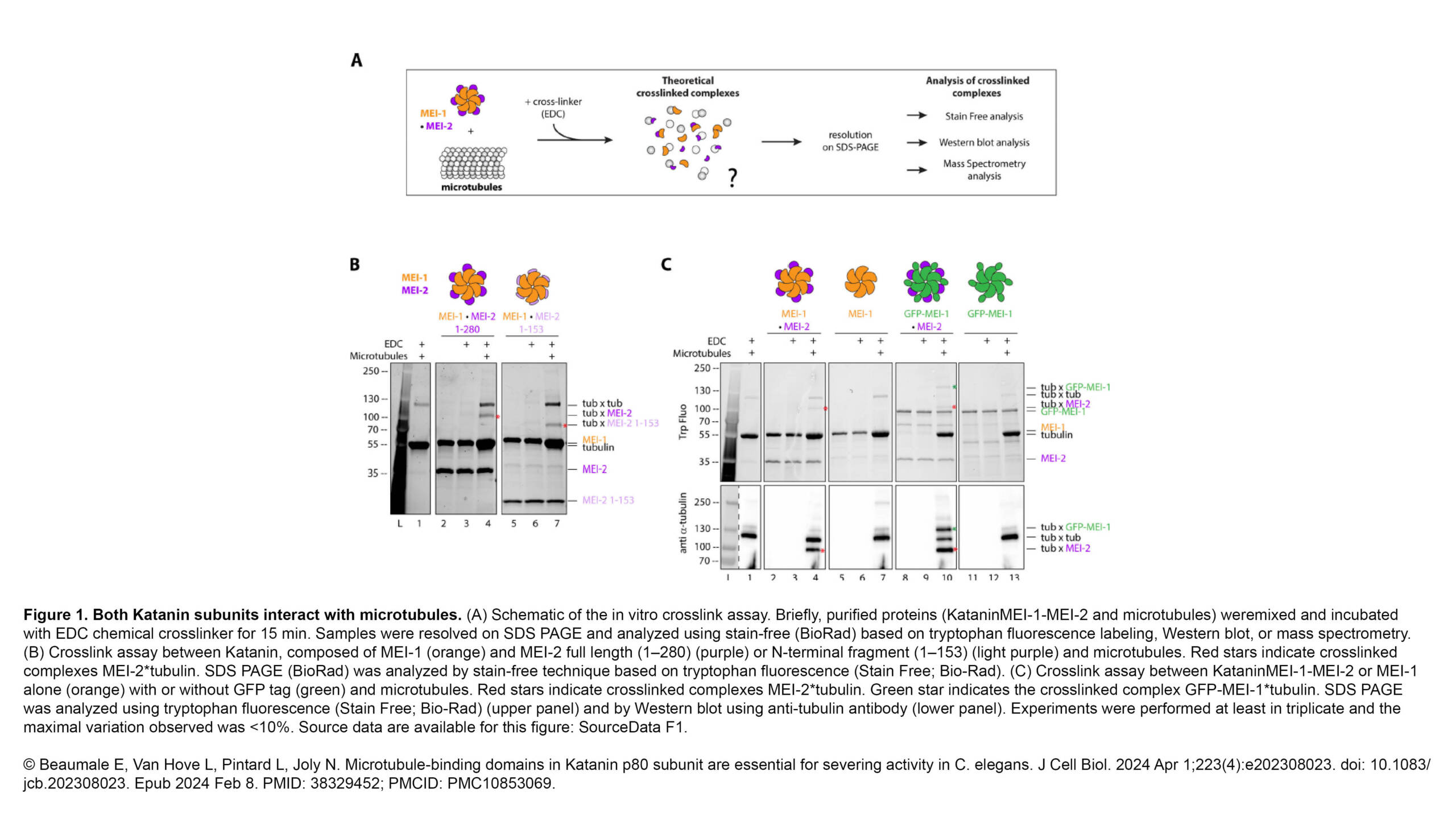
L'équipe Pintard a publié un nouvel article dans Journal of Cell Biology :
Microtubule-binding domains in Katanin p80 subunit are essential for severing activity in C. elegans
Résumé :
Microtubule-severing enzymes (MSEs), such as Katanin, Spastin, and Fidgetin play essential roles in cell division and neurogenesis. They damage the microtubule (MT) lattice, which can either destroy or amplify…

L'équipe Courtier a récemment publié un nouvel article dans BMC Ecology and Evolution :
Higher evolutionary dynamics of gene copy number for Drosophila glue genes located near short repeat sequences
Résumé :
Background
During evolution, genes can experience duplications, losses, inversions and gene conversions. Why certain genes are more dynamic than others is poorly understood.…
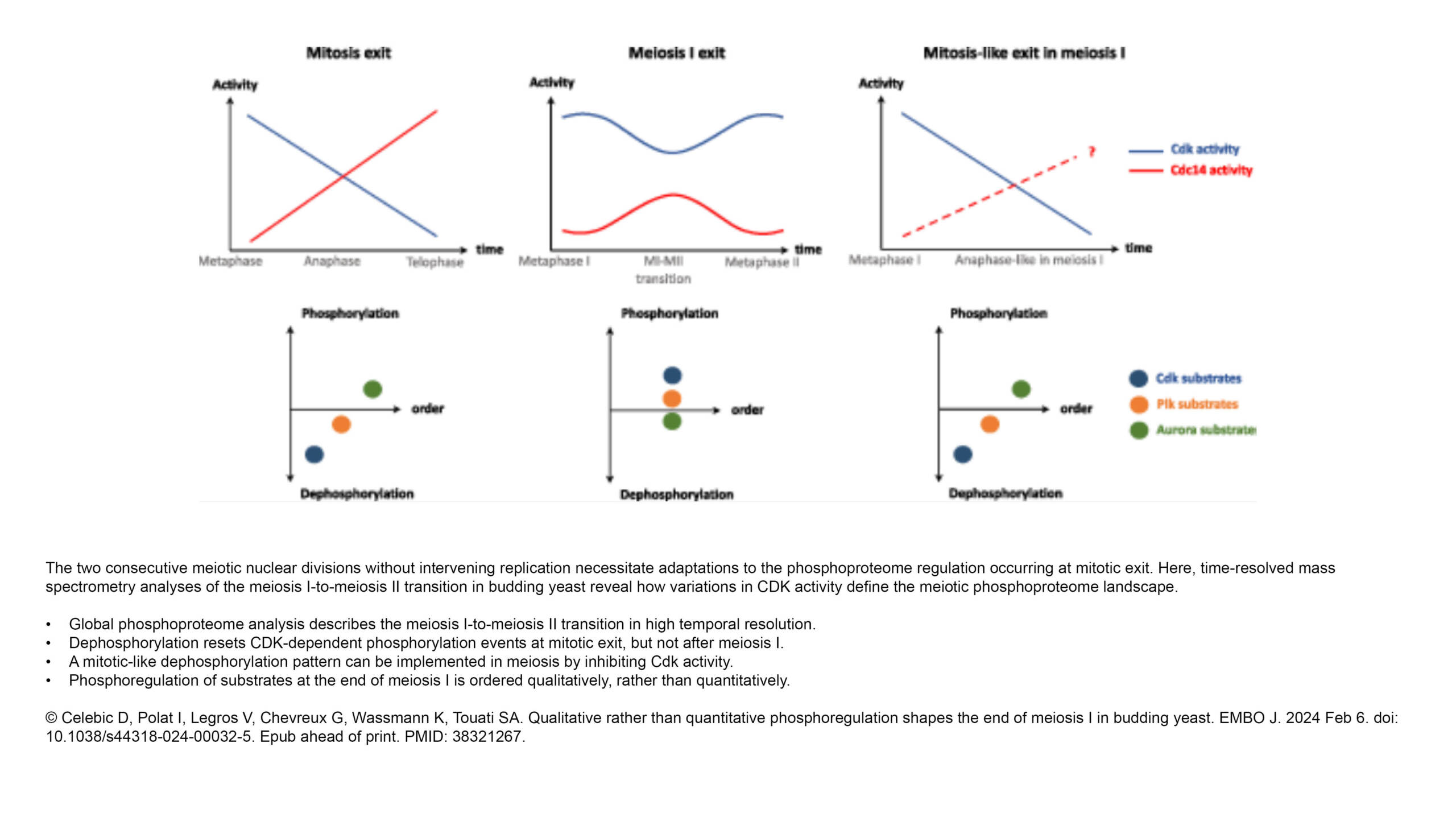
L'équipe Wassmann a publié un nouvel article dans EMBO :
Qualitative rather than quantitative phosphoregulation shapes the end of meiosis I in budding yeast
Résumé :
Exit from mitosis is brought about by dramatic changes in the phosphoproteome landscape. A drop in Cyclin-dependent kinase (Cdk) activity, the master regulatory kinase, and activation of counteracting phosphatases such as Cdc14…
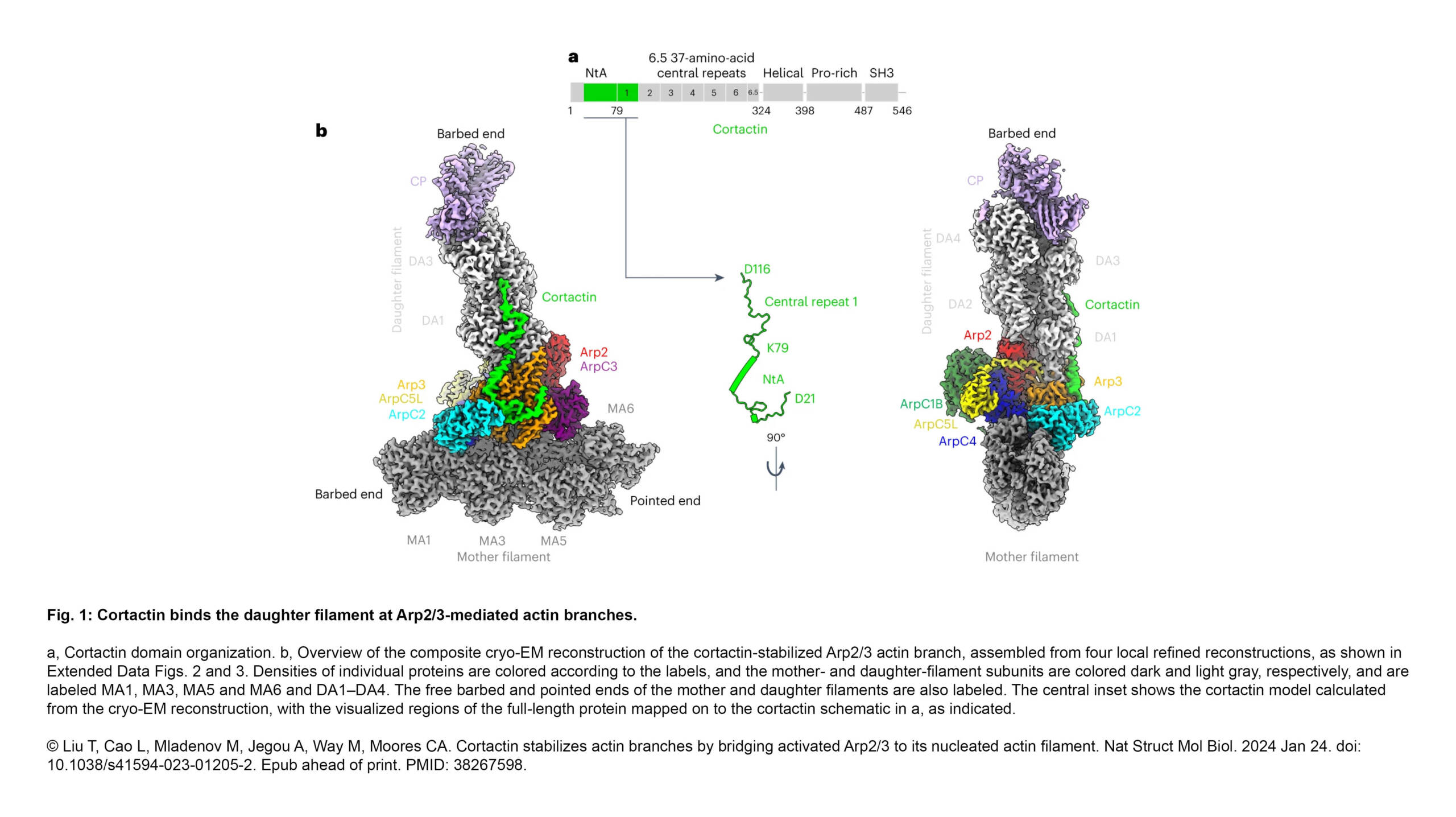
L'équipe Romet-Lemonne/Jégou a contribué à la publication d'un nouvel article dans Nature structural & molecular biology :
Cortactin stabilizes actin branches by bridging activated Arp2/3 to its nucleated actin filament
Résumé :
Regulation of the assembly and turnover of branched actin filament networks nucleated by the Arp2/3 complex is essential during many cellular processes, including cell migration…
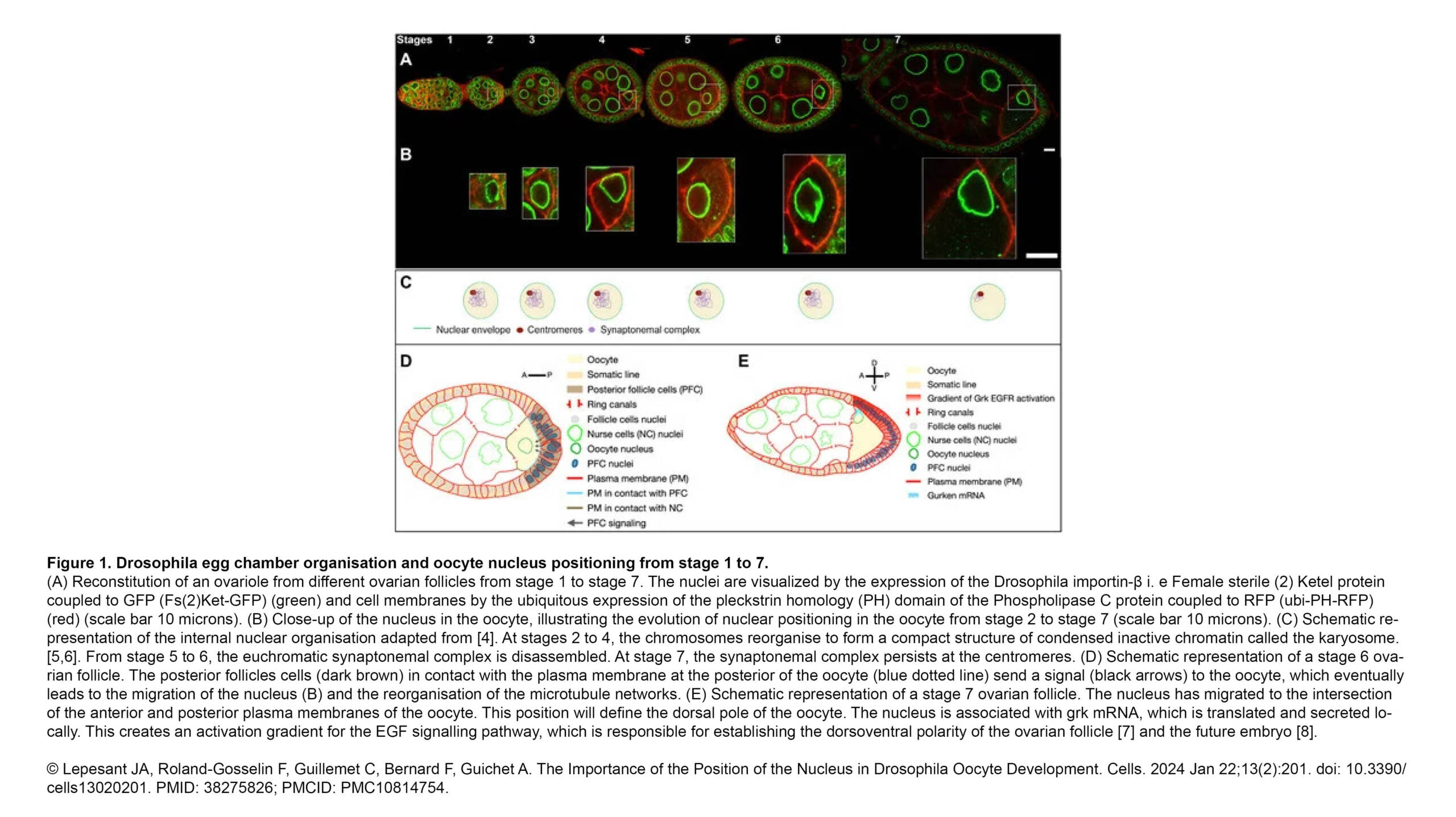
L'équipe Guichet a publié un nouvel article dans Cells :
The Importance of the Position of the Nucleus in Drosophila Oocyte Development
Résumé :
Oogenesis is a developmental process leading to the formation of an oocyte, a haploid gamete, which upon fertilisation and sperm entry allows the male and the female pronuclei to fuse and give rise to…
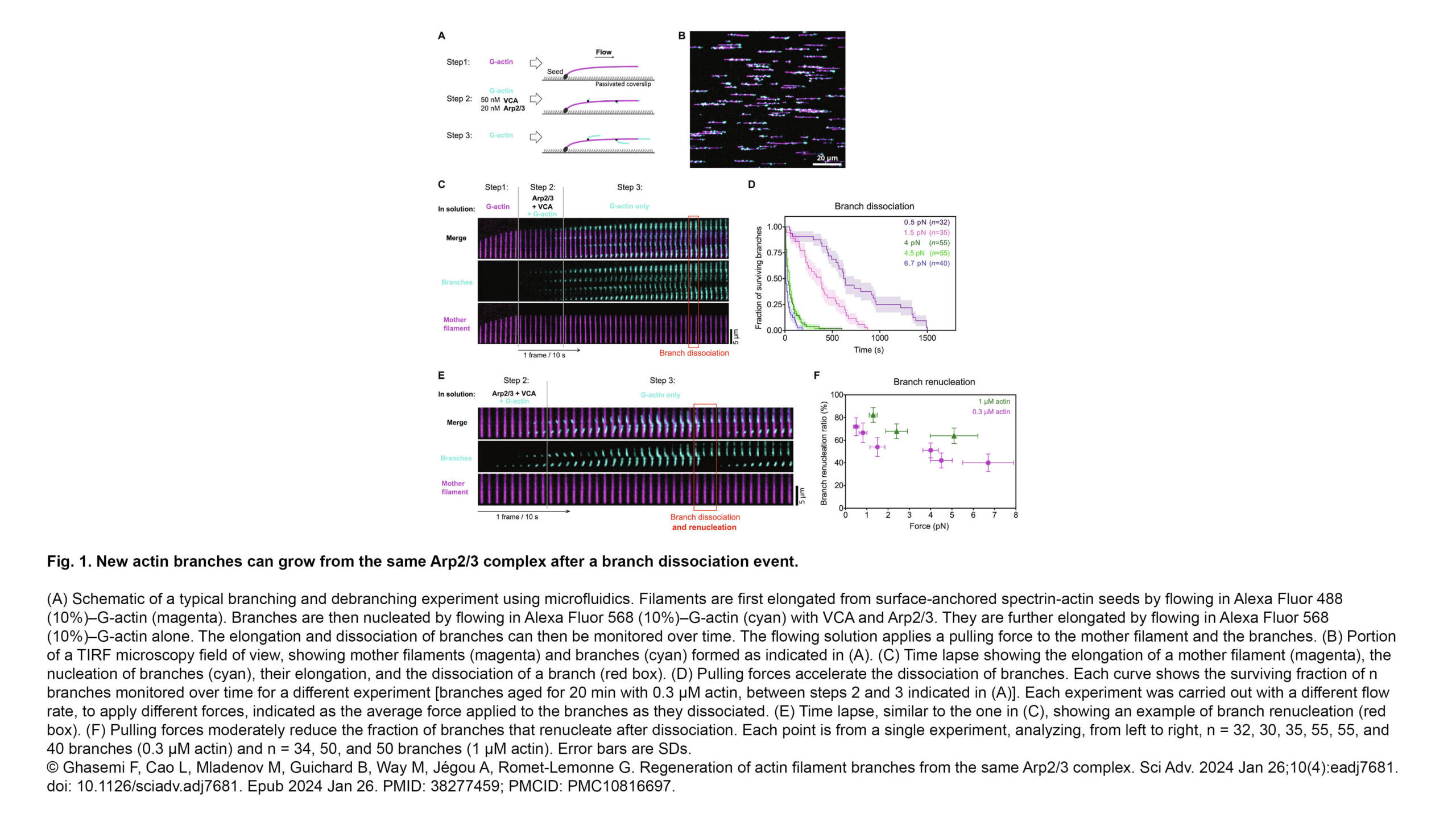
L'équipe Romet-Lemonne/Jégou a publié un nouvel article dans Science Advances :
Regeneration of actin filament branches from the same Arp2/3 complex
Résumé :
Branched actin filaments are found in many key cellular structures. Branches are nucleated by the Arp2/3 complex activated by nucleation-promoting factor (NPF) proteins and bound to the side of preexisting “mother” filaments. Over time,…

